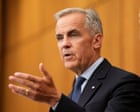
In a notable shift on the global diplomatic stage, a collective movement is gaining strength towards the recognition of Palestinian statehood. Fourteen countries, alongside France, have put their support behind this initiative, sparking a wave of potential endorsements worldwide. This significant development marks a pivotal moment in the longstanding journey toward recognizing the sovereignty and rights of the Palestinian people.
The initiative, detailed in a declaration known as the New York Call, was published by French Foreign Minister Jean-Noël Barrot. This collective expression of willingness to acknowledge the State of Palestine brings attention to a diverse group of nations including Canada, New Zealand, and Australia, which might join this movement in the upcoming months. The New York Call emphasizes a positive outlook and diplomatic readiness to bridge differences and strive towards peaceable solutions.
Amidst this backdrop, Canada has declared its intention to recognize a Palestinian state, while Australia is still deliberating its position. Australian Treasurer Jim Chalmers has conveyed that there is a nuanced discussion in place regarding this issue, amidst wider geopolitical considerations. Chalmers highlighted the various factors at play, pointing to global economic uncertainties and national security concerns that influence these diplomatic decisions.
On another front, the recent legal proceedings in the UK involving Palestine Action indicate the delicate balance between national security and political expression. A high court judge acknowledged the potential repercussions of banning this direct action group under anti-terrorism laws. The decision to allow Palestine Action to contest the ban suggests a mindful approach to how laws are applied concerning political activism, underscoring the importance of preserving legitimate political discourse.
The dialogue around Palestinian recognition is multi-faceted and deeply sensitive for many stakeholders. Recent remarks by Emily Damari, a British-Israeli former hostage, illustrate the personal dimensions of these geopolitical decisions. Damari criticized UK Prime Minister Keir Starmer’s intention to recognize Palestine, reflecting concerns over the impact of such recognition on political and security dynamics in the region.
In Portugal, there are calls for a more active diplomatic role in the Middle East crisis. Presidential candidate António Filipe has emphasized the need for recognizing Palestine alongside concerted diplomatic efforts for a ceasefire. Moreover, the Lisbon city council has condemned actions against the Palestinian people, echoing the urgency for attention to the humanitarian aspects within conflict zones.
As nations deliberate over recognizing Palestinian statehood, the path forward seems to embody a collective pursuit for peaceful coexistence and diplomatic collaboration. These efforts are part of a broader endeavor to balance justice, security, and the enduring hope for a harmonious future. Through collaborative international efforts and grounded in mutual understanding, this unfolding narrative offers a reflective pause—a moment to reassess global relationships and prioritize enduring peace.
Source: {link}
